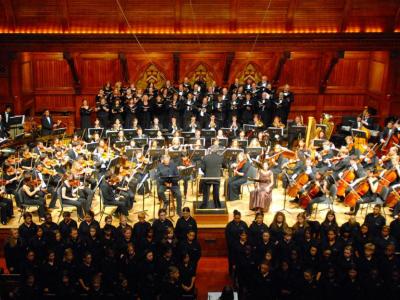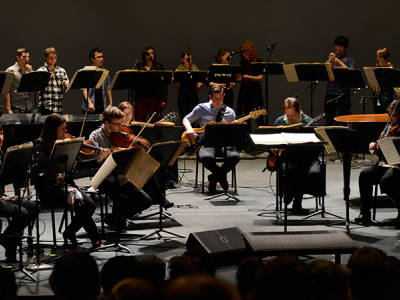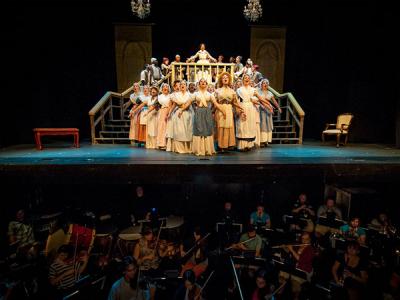What does a Repetiteur do?
A role that's entirely unique to opera, the repetiteur is one of the driving forces behind the opera rehearsal process. During group rehearsals, these pianists serve as accompanists, skillfully reducing the complicated orchestral scores for piano in a way that preserves the spirit of a live orchestra. Then, when it's time for small group or one-on-one rehearsals, repetiteurs add vocal coaching to their already heavy workload. Working with soloists and chorus members, they correct the singers' pitch, rhythm, musicality, and even pronunciation. This unique combination of teaching and playing in service of one of the most singular art forms around—opera—makes those in the know describe this role as one of the most creatively diverse and fulfilling available for an experienced pianist and teacher.
Love for musical coaching and deep knowledge of opera repertoire—every voice, every instrument, and every word—are absolutely necessary for this role.
Despite what the name might suggest, this job is far from repetitive. Repetiteurs not only need to be master pianists capable of sight-reading and reducing scores at the drop of a hat, but must also possess almost encyclopedic knowledge of opera repertoire. As if that weren't enough, they also sometimes take rehearsal notes for conductors, sing choral parts (while playing piano), play other keyboard instruments, operate sound effects, and conduct backstage choirs during performance. Additionally, the job requires repetiteurs to be proficient in a number of languages, the most common of which are Italian, German, French, English, and Russian. All in all, it’s a varied and nuanced job that requires a diverse skill set, an impressive work ethic, and incredible attention to detail.
At a Glance
Most repetiteurs study some combination of piano performance, voice, and opera in a conservatory setting. They gain experience teaching by coaching individual singers or working with choirs; and they build experience accompanying opera by playing with local, amateur, or youth opera groups. Like the opera performers they coach, repetiteurs can eventually work their way up to jobs with respected opera companies through a combination of persistence, connections, and lucky breaks. On the other hand, some choose to move into related but distinct fields, becoming chorus masters, musical directors, conductors, or independent vocal coaches.
Not many musicians have the diversity of skills, thorough knowledge, and flexible disposition necessary to be a repetiteur. As a result, despite the limited number of available positions in the field, it’s not hard to find work for those who are persistent, assertive, and qualified. Some opera companies have a trainee position, which functions almost as an assistant repetiteur; this can be a good place to start. Youth opera is also a sure bet for gaining experience.
- Piano performance
- Sight-reading
- Accompanying
- Transposition
- Conducting
- Orchestral reduction
- Foreign languages (at least two of Italian, German, French, English and Russian)
- Vocal performance and coaching
- Harpsichord
- General opera repertoire
Repetiteurs must have exceptional patience and stamina. Rehearsals are long, and there’s a reason for the name "repetiteur"—difficult passages may be repeated dozens of times over. In a setting like this, maintaining concentration and coming in on the right bar every time requires razor-sharp focus. On the teaching side, it's important for repetiteurs to be communicative, supportive, and personable. Finally, love for musical coaching and deep knowledge of opera repertoire—every voice, every instrument, and every word—are absolutely necessary for this role. Love for this work, along with a certain degree of humbleness, is essential for success as a repetiteur.
Repetiteurs can be freelancers, working with opera companies on a part-time basis, in which case they are usually paid for three-hour sessions. These freelance repetiteurs usually also work as a general accompanist, concert pianist, or conductor. More often, though, repetiteurs are full-time employees who are paid a salary as members of the opera company’s musical crew. Travel is uncommon but still an expected part of the job; whether freelance or in-house, most repetiteurs will end up going on tour at some point. Being a repetiteur can mean long hours, especially in the final weeks before the show goes up. Staging rehearsals usually take all day, and afterward the repetiteur goes back home—you guessed it—to practice the next day's music.







